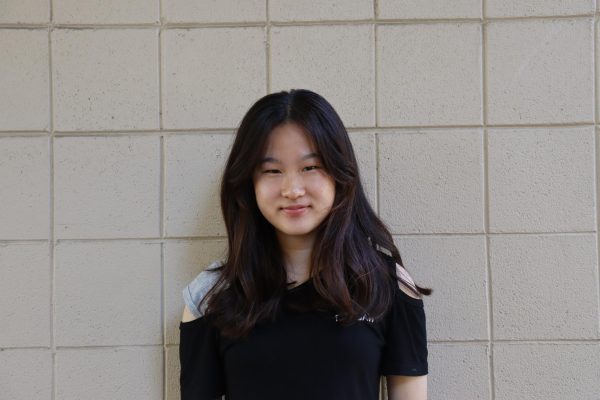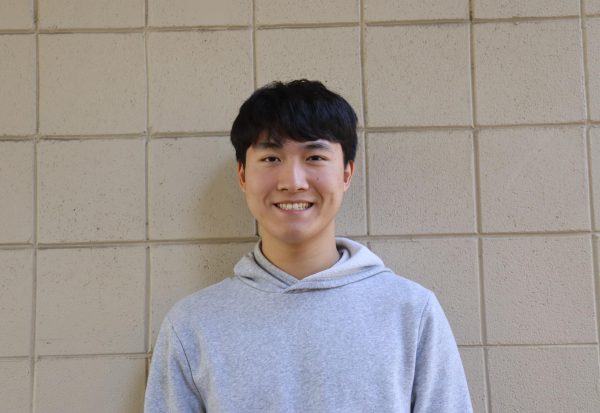Some seniors say they would just about rather die than repeat the pain of their college application process, but others see the process as meaningful as it helps them better understand their accomplishments in life so far.
Whatever opinion you might have, it is an experience that is personal in different ways to different students. So as members of the Class of ‘25 currently going through this process, we interviewed our fellow classmates with unique interests to profile their college journeys.
Portfolios and auditions for musician
Ian Kim, with his combined interests in chemistry and double bass performance, is looking into many dual programs at colleges as well as applying to selective music schools. He has been balancing practicing music, recording portfolios and doing college applications at the same time.
Kim has been preparing the pieces that he will be auditioning with for six months. He said he did not learn them just for the sake of college admissions, but rather general repertoires at his own pace.
“For many music-specific schools, most of them require something called a ‘pre-screening’ before auditions, basically a mini audition, where you send in music tapes for review. If you pass that round, you need to fly out for in-person auditions,” Kim said.
One additional stressor for music majors is that a huge part of their application comes down to the actual audition, and unlike submitting essays and activities online, it all comes down to a real-time performance.
“I feel like for a lot of students, the audition is the bottom line, and that’s what gets you in or gets you rejected, so essentially, everything lies on this one 5 or 10 minute performance, and if you mess up, your chances are kind of ruined at that school,” Kim said.
The most helpful part of the process was meeting professors of certain music schools in person to either have lessons with them or talk through the application process.
Kim has met professor Timothy Pitts of Rice University, who was able to give him guidance on the application process.
“He answered all my questions about the application process, including questions for students who were interested in double majoring, which is not common for music students at Rice,” Kim said.
Due to the early applications deadline for non-music schools coming soon, Kim has been cutting down on his practices in order to allocate more time for writing essays and ensure that he is all caught up with school work.
“I used to always commit to a practice schedule during regular times and years before,” he said. “But by the start of this school year, rather than a strict schedule, I have only been practicing when I have time,” Kim said. “I’ll choose how to spend my time each day, whether I need to work on academics more or music.”
Competitive computer science realities
Timothy Wei went into high school with a clear interest in computer science. Hence, he has been building his extracurriculars around the subject since 9th grade.
Wei is applying to more out-of-state universities than in-state schools, attributing the academic strength and course offerings of those in his intended field.
“The ratio of in-state vs. out-of-state universities I’m applying to is approximately 1:2 because there aren’t as many top-tier computer science programs in California, especially when considering schools like MIT, CMU, UIUC, Georgia Tech and others,” Wei said.
Unlike music majors that use pre-screenings, STEM majors more generally require a “STEM supplement,” which may contain oriented research, activities and awards; in Wei’s case, it could be websites or programs made, hackathons and other significant projects.
As a part of his approach to prepare for the college application process, Wei had done numerous math and programming competitions in the years prior, but had started to shift toward doing more research in recent times.
“I pivoted toward doing research that’s more long-term rather than short-term competitions because I found that competitions, first of all, take a lot of time, and because there’s one almost every other week, it’s just a big sink of your time if you’re really into [competitions],” Wei said. “I took two years to get most of my achievements and honors in competitions, which require dedication all year round. Research is quicker because it only takes maybe one or two months on one paper topic. ”
For underclassmen or others who might be interested but intimidated by research, Wei encourages them to always start off small, perhaps on their own first, and then find mentors who can provide help and guidance accordingly.
“It’s actually a lot easier to submit papers than people realize,” he said. “All you need to do is to write on ideas that interest you and then find a conference to submit it to. One recommendation I have is that you can submit to basically any IEEE (Institute of Electrical and Electronics Engineers) conference that is in their first year because they’re always going to be short on papers.”
As for how to balance his outside research work and school along with college applications, Wei took the advantage of the summer before 12th grade to focus heavily on his papers to leave out more time after school starts.
“I have three outgoing papers, two conferences, and they are all accepted. I grinded everything out over the summer, so now I can relax on that end because I’m not doing any work [for research],” Wei said. “That’s the thing I like about research. You get something out, get it accepted, and then can just wait until that conference is over before you start again. So it’s a lot more flexible.”
Finding passion in the interdisciplinary Pre-Med path
Eunseo Eo remembers offering a big hug to a young boy, her new buddy at the Milal special education volunteer program, where her initial interest in neuroscience and Pre-Med was sparked.
Working with neurodivergent kids inspired her to take her first steps toward a Pre-Med path, as she hoped to research the issues that were isolating these kids from their peers of the same age.
Since Pre-Med is a long-term track instead of the typical four-year major, Eo has chosen to study Biostatistics as her intended major in college. Working with a Professor from Yale University, she researched the association between physical and intellectual disabilities using the coding language R.
“That research paper really taught me a lot about the impact I could have on real people,” Eo said. “Seeing trends and connections emerge through the data showed me how important applying an analytical viewpoint to Biology could support communities with disabilities.”
In addition to volunteering at Milal, she is also an academic tutor at school, helping instructors with CBI (Community-based Instruction) for special education students at SHS as well.
Part of the reason Eo was eager to pursue Biology with Statistics was because of her strong background in coding, with fluency in Java, R and Python.
One thing that Eo notes is unusual about the Pre-Med track is that while many other students might consider college as their last level of education, she only views her undergraduate experience as a short-term goal to approach her long-term goal of finishing medical school.
“I think this also gives me a different mentality when it comes to choosing a major, since I’m not really thinking about the prestige of it, but rather what’s the most practical, what I can succeed the most in other than the name value,” Eo said.
For students that also want to pursue Pre-Med, Eo had this advice: “Volunteer and clinical hours are super important for Pre-Med because it shows your motivation and compassion to make actual societal changes, since you actually need to care a lot for other people, and sometimes that includes a lot of sacrifices on your part. I don’t think any other field of study highlights this aspect more than Pre-Med.”






























